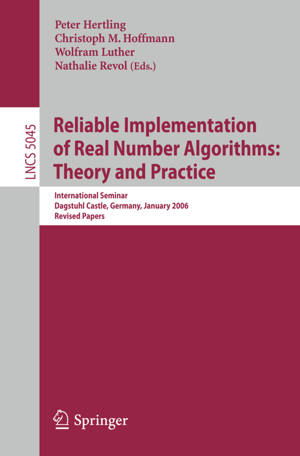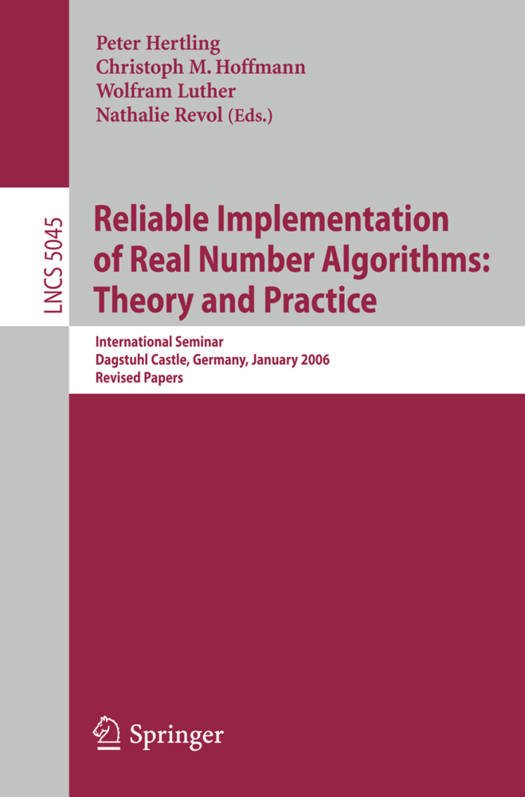
- Afhalen na 1 uur in een winkel met voorraad
- Gratis thuislevering in België vanaf € 30
- Ruim aanbod met 7 miljoen producten
- Afhalen na 1 uur in een winkel met voorraad
- Gratis thuislevering in België vanaf € 30
- Ruim aanbod met 7 miljoen producten
Zoeken
Reliable Implementation of Real Number Algorithms
Theory and Practice
€ 52,95
+ 105 punten
Omschrijving
A large amount of the capacity of today's computers is used for computations that can be described as computations involving real numbers. In this book, the focus is on a problem arising particularly in real number computations: the problem of veri?edor reliablecomputations. Since real numbersare objects c- taining an in?nite amount of information, they cannot be represented precisely on a computer. This leads to the well-known problems caused by unveri?ed - plementations of real number algorithms using ?nite precision. While this is t- ditionally seen to be a problem in numerical mathematics, there are also several scienti?c communities in computer science that are dealing with this problem. This book is a follow-up of the Dagstuhl Seminar 06021 on "Reliable Imp- mentation of Real Number Algorithms: Theory and Practice," which took place January 8-13, 2006. It was intended to stimulate an exchange of ideas between the di?erent communities that deal with the problem of reliable implementation of real number algorithms either from a theoretical or from a practical point of view. Forty-eight researchers from many di?erent countries and many di?erent disciplines gathered in the castle of Dagstuhl to exchange views and ideas, in a relaxed atmosphere. The program consisted of 35 talks of 30 minutes each, and of three evening sessions with additional presentations and discussions. There were also lively discussions about di?erent theoretical models and practical - proaches for reliable real number computations.
Specificaties
Betrokkenen
- Uitgeverij:
Inhoud
- Aantal bladzijden:
- 239
- Taal:
- Engels
- Reeks:
- Reeksnummer:
- nr. 5045
Eigenschappen
- Productcode (EAN):
- 9783540855200
- Verschijningsdatum:
- 28/08/2008
- Uitvoering:
- Paperback
- Formaat:
- Trade paperback (VS)
- Afmetingen:
- 155 mm x 236 mm
- Gewicht:
- 385 g

Alleen bij Standaard Boekhandel
+ 105 punten op je klantenkaart van Standaard Boekhandel
Beoordelingen
We publiceren alleen reviews die voldoen aan de voorwaarden voor reviews. Bekijk onze voorwaarden voor reviews.










